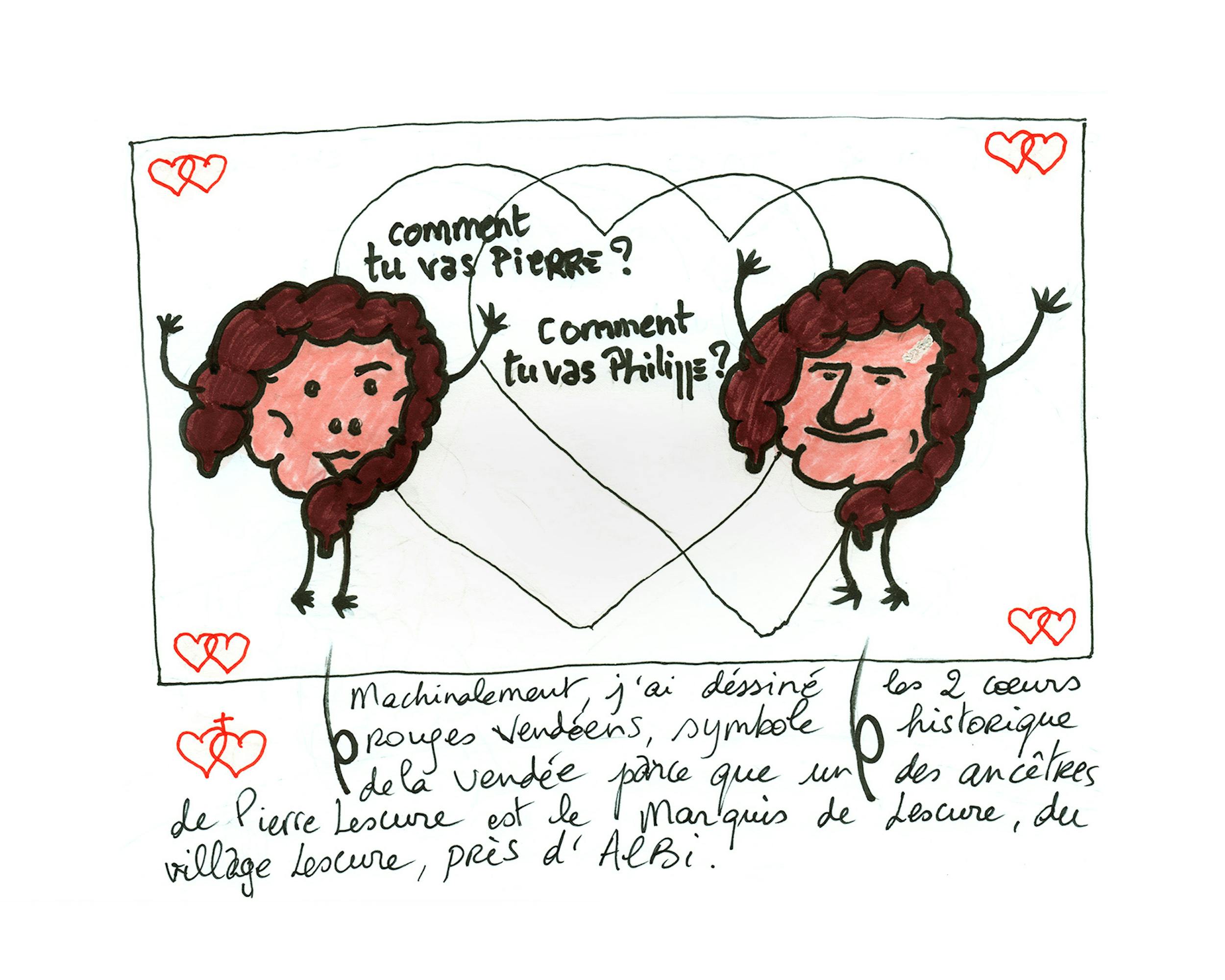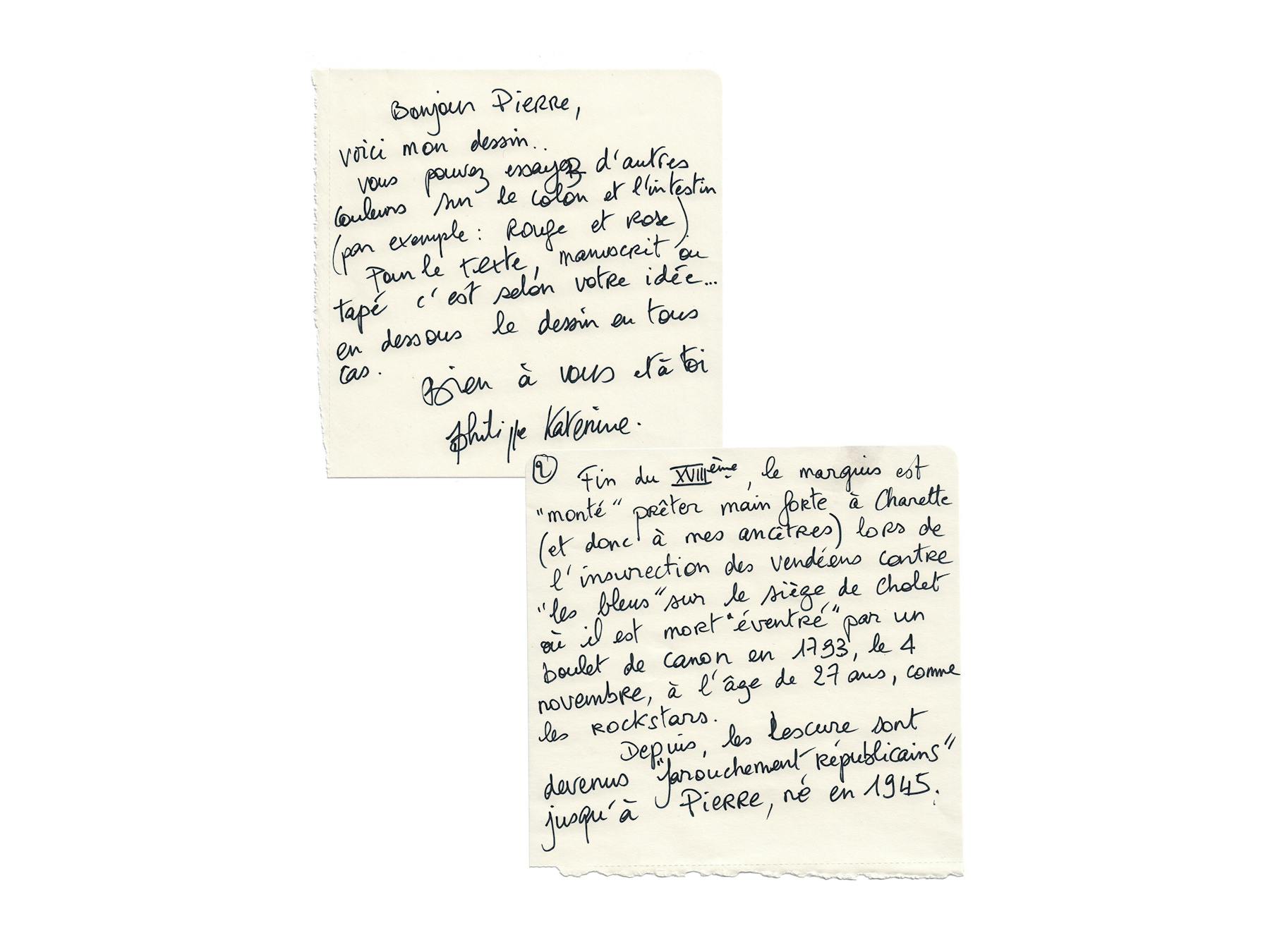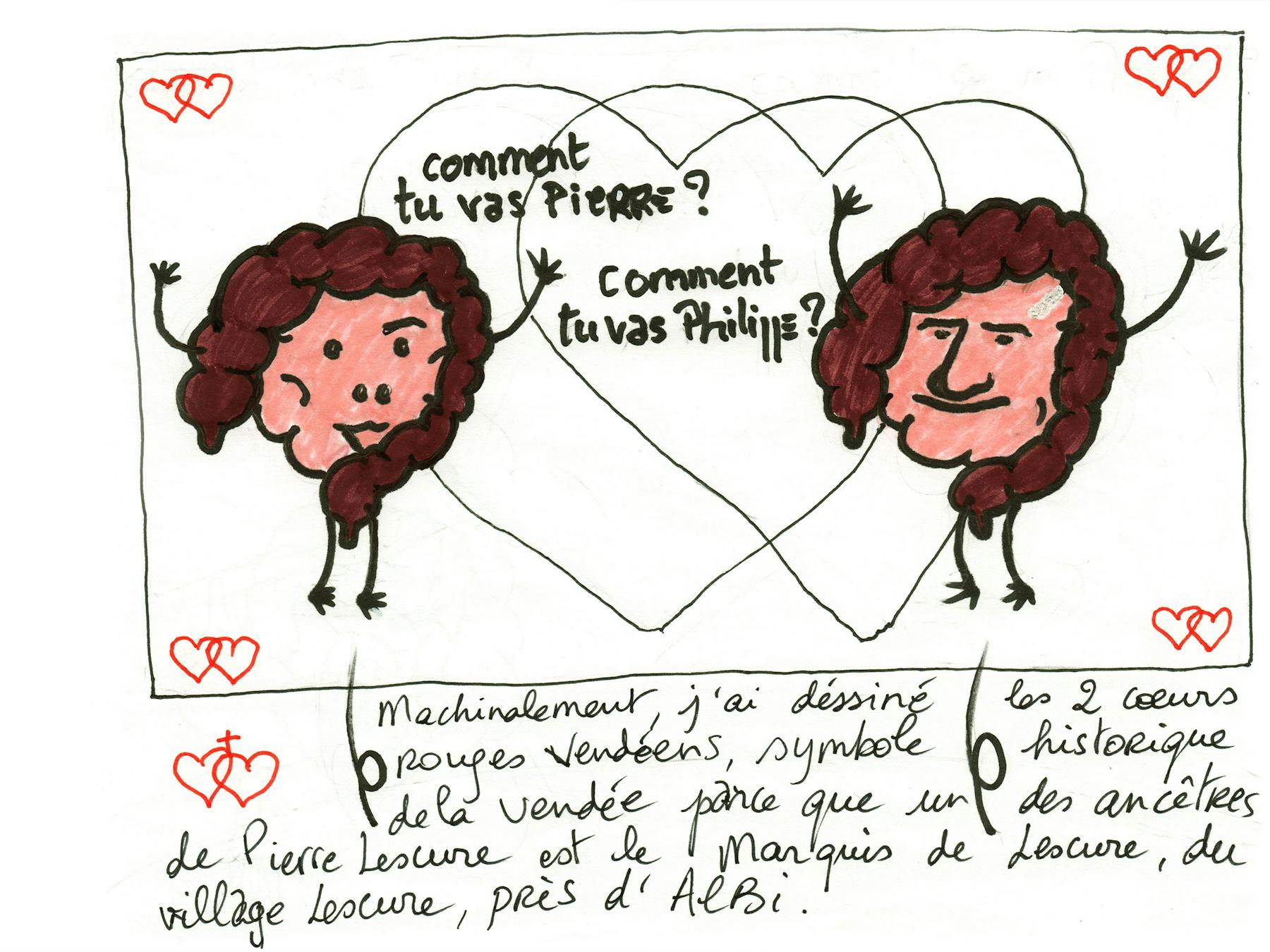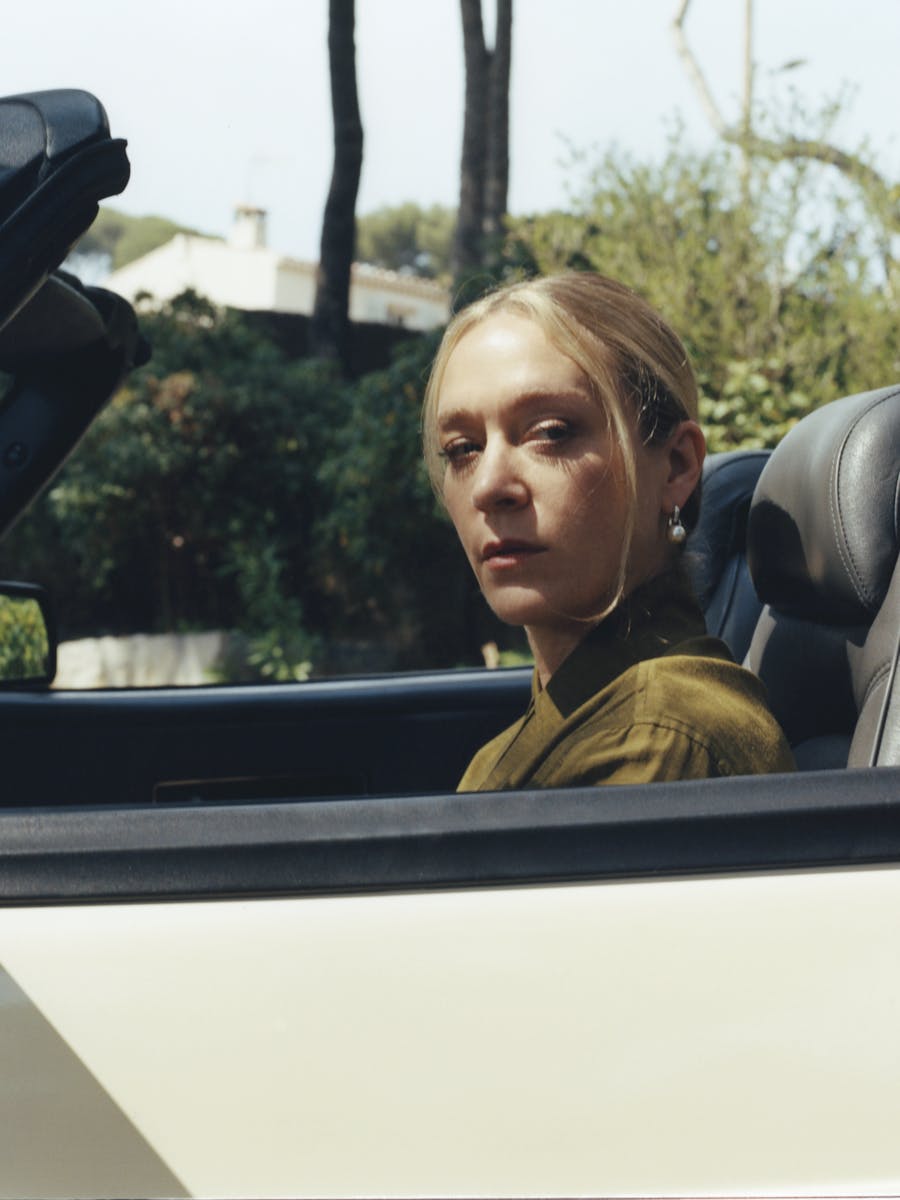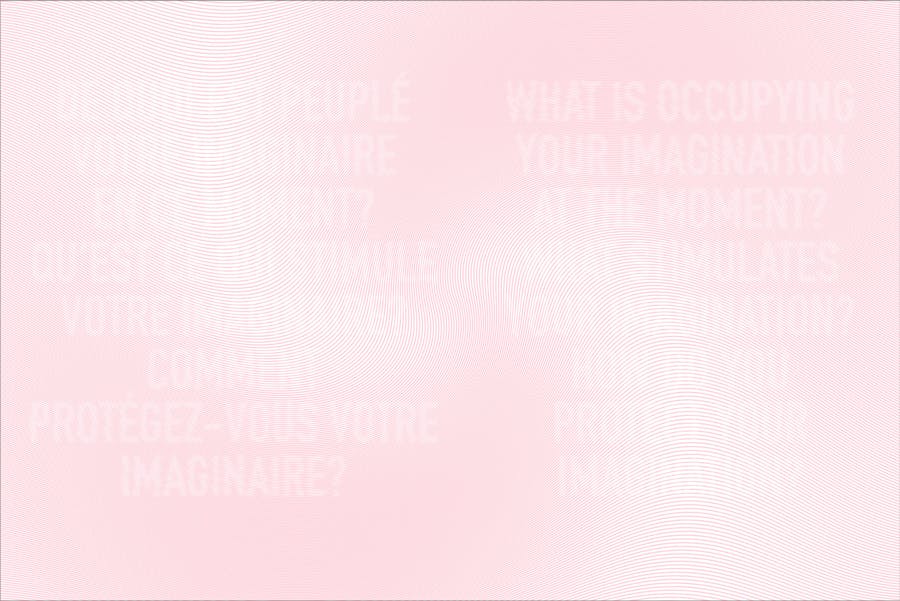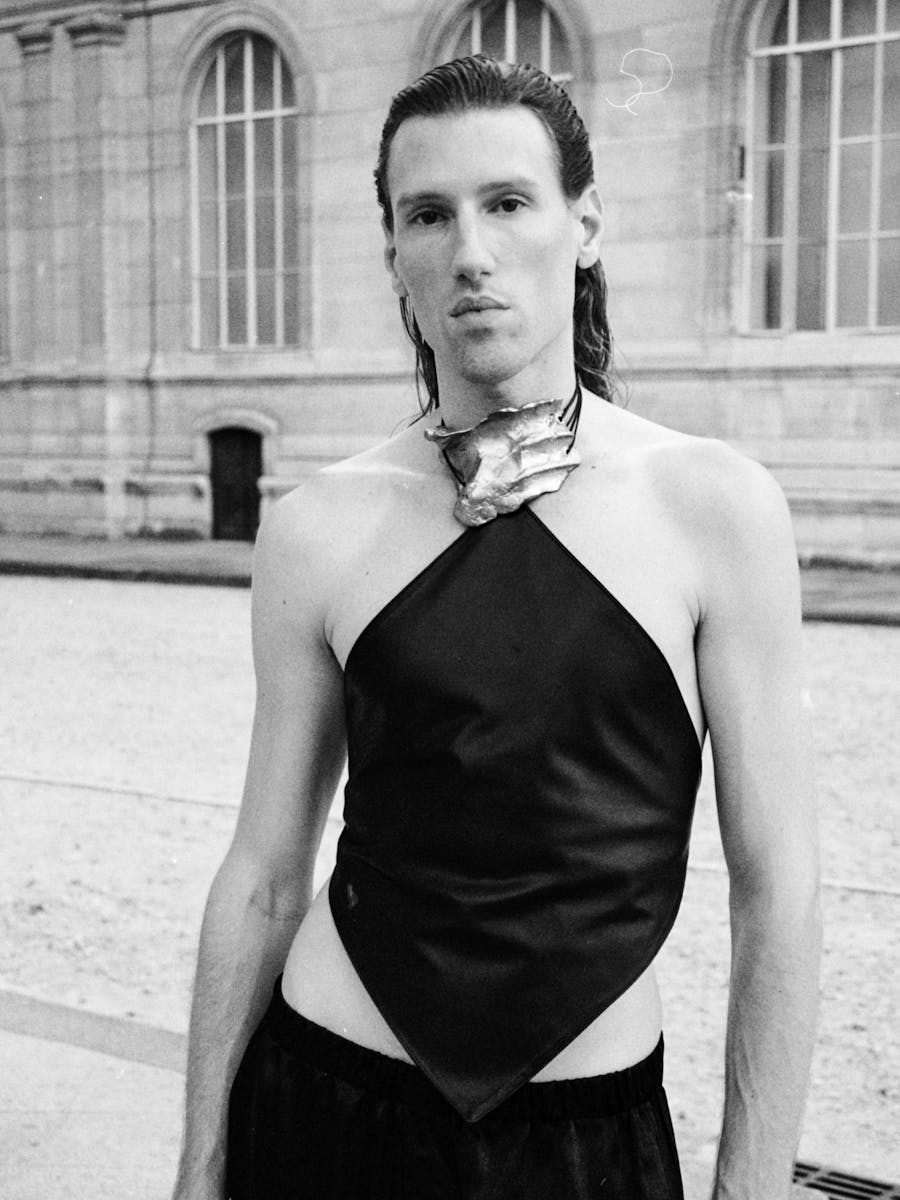It was Philippe who had suggested that we have dinner at the Train Bleu at the Gare de Lyon. « I first saw "La Maman et la Putain" when I was little, and I’ve always loved it; I love this station and this restaurant, the rails and the trains. We can watch them as they go, and yet we don’t leave. » With this last sentence a slight smile plays in his eyes and at the corner of his lips, we are under his spell. The three of us are Sophie, who is very pretty and writes well, Edwin, the artistic soul of the magazine, and me. And just like approximately 88% of French people, we love Philippe Katerine.
‘88%’ is the title of one of the standout tracks on Confessions, his latest album, a collaboration with Lomepal. This is a song that declares: « 88% of men are gay. » Having recently seen La Cigale crammed to the rafters with fans singing the chorus with gusto, I can assure you that it is both celebratory and interesting. Celebratory, because it reflects Philippe Katerine’s freedom when it comes to talking about men and women, about their sensitivity and their complexity. About their desire for freedom as well. « Of course », says our friend as he tucks into his starter, « it’s a way of seeing things… but scientifically provable at certain events. » Therefore celebratory, but also interesting. For, as so often in his songs, Philippe Katerine, with a great lightness of touch, directs people from all generations to think about their lives and loves. To think is already to be stronger and freer.
In this issue of Exhibition we are broaching the subject of ‘deconstruction’. Here the free and iconoclastic way in which Katerine seems to have built and ‘restored’ his life doubtless explains the friendly, artistic, affectionate attachment so many men and women feel for him today.
He flicks through one of the copies of Exhibition which Edwin and Sophie have brought him. After a beer before the meal, he asks for white wine to accompany his fish. « Oh, you work with Marine Serre? She designs the stage outfits for me and my group. » The designer has crafted some very becoming lace leggings for him.
There are some great collaborations on Katerine’s album: with Camille, with Léa Seydoux, with Lomepal of course, with his father-in-law Gérard Depardieu, and also with Dominique A, on ‘Bof Génération’, one of the best tracks – even if there are many of them – on this brilliant record. « Dominique A, » says Philippe, « is basically my twin. We were both born in 68, two months apart. I often miss him; we both come from the West. One day, Les Inrocks asked us to write a duet. Dominique wrote a really moving song about friendship. It’s called ‘manque moi moins’ (miss me less): it’s hard to say, but it’s beautiful, and I remember that we sang it with tears in our eyes. » Personally, I am astounded to hear about this relationship between Dominique, who, for me, is one of the greatest French singer-songwriters, and Philippe, with his deep, discombobulating charm.
Philippe Katerine remembers coming back from Nantes after having celebrated Dominique’s 50th birthday. « It was late afternoon, I was in the train, a bit drunk, and I heard an instantly recognizable voice behind me – Catherine Deneuve. Perhaps owing to the state I was in, I didn’t think twice about saying hello. It paid off. She said: ‘I like what you do.’ So, I started telling her about a few little problems I was having in my relationship at that moment. I know that she really likes Julie (Depardieu). They are both very grounded women. Deneuve said to me several times: ‘Don’t give up, Philippe!’ She said it very seriously. I saw that it was important to her. I didn’t find it hard to follow her advice. »
After the concert at La Cigale, I went to see Philippe backstage. As family portraits go it was captivating. Julie was stunning and impish, under the gaze of her mother, the charming Elisabeth. Philippe was happy as Larry with their two sons, who were joyful, boisterous and cheeky. An image of contentment, make no mistake. Philippe also has a grownup daughter, Edie, who is 26 and very talented. We have her to thank for the abundantly creative videos that have accompanied her father’s recent songs.
Under the gilded wainscoting and restored frescoes of the Train Bleu, we talk about other songs. Moustaki, for instance, to whom his mother listened a lot, and the military music dear to his father. I tell him I like the gentle musicality of his phrasing. « We all speak like that, we all have that musicality in the forests of the Vendée,» he says. « Specifically in the forests. It’s different on the plains or the coast. » In passing he expresses his regret that even if the Chouans were wrong, the history books have largely erased their history, along with the 600,000 dead. He doesn’t talk much about politics, preferring to remain silent on the subject, although he does mention his worries in the track ‘BB Panda’. « Don’t you see that we’re heading for disaster », the song says. Over the meal, he expresses some sympathy for Macron, ‘who is not without his good points’, and then he makes a crazy remark, that would never be heard on the news: « Sometimes you want to give him a slap, though I am sure he could have done great things in another field. »
Other tracks from Confessions are equally deserving of praise, like the one called ‘Duo’ with Angèle and Chilly Gonzales, a song about music and its construction. A model song! Then I tell him how much grace there is in the song ‘La Converse avec vous’. Which is a way of thanking him for his gift for tactful exchanges, for dialogue painted with delicacy, with the finest of brush-strokes.
Edwin and I tell him how bowled over we were by the version of ‘Aline’ which he and Christophe recorded for the recent album, Christophe Etc. Volume 2. Everyone knows the hit from 65. Christophe often does a bluesy, acoustic version. Philippe agrees: « That way of elevating the song, making it grown, perhaps shows us ‘Aline’ in a new light. » It’s certainly true that Philippe has his own way of crying ‘Aline!’
When the rum baba arrives, I ask Katerine to explain something he had said in Télérama. According to him, we don’t pay enough attention to the digestive tract, or the sexuality, of dictators. He explains, while adding rum to his baba: « The operative word there is digestion. Digestion is the boss; it determines your sexuality, all of your life, at work and everywhere else. I sensed it, but now I live with a woman who is the real master of this territory. Julie can sense whether someone has good or bad digestion from the first handshake. We talk about it a lot. » It’s clear that Philippe is talking about this quite seriously, although he is aware of the comical aspect of the subject. Nonetheless he continues: « I don’t know many quotes, but I know this from Raymond Queneau: « I could never trust someone who didn’t look at what he has just left in the toilet bowl.’ » It is his daily masterpiece. It changes every day. Sometimes deconstructed (here he smiles), sometimes with great authority.
I leave you to imagine the enthused expressions of Sophie and Edwin and my own chortling as a lover of juvenility and toilet humour. Philippe offers us some history: « When we ask, ‘How’s it going?’, that question comes from ‘how is it going, going to the toilet…’, because doctors always knew that that bowel movements were the key. » So no geopoliticking without a detailed knowledge of dictators’ digestion!
We say our farewells shortly after. Philippe spends the night at the station hotel before getting the train the next day to l’Alpe d’Huez. Sophie, Edwin and I agree that we will never read Le Monde Diplomatique the same way again, but above all, after such an evening, we will certainly miss Philippe Katerine…
Translated into English by Sara & Emma Bielecki.
